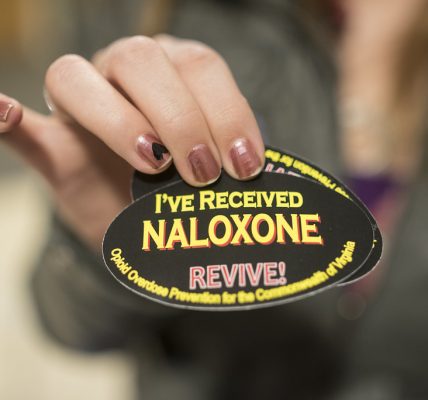Drug Companies “Apathetic” About Testing GLP-1 Drugs to Treat Substance Use Disorders

Anecdotal evidence indicates that GLP-1 drugs such as Wegovy and Ozempic also reduce the urge to drink among those suffering from alcohol use disorder. The hard science is hard to find, though, and drug companies seem almost disinterested in doing the research.
In a recent interview with Elaine Chen at STAT News, Nora Volkow, director of the National Institute on Drug Abuse, spoke of drug makers’ “apathy” toward the addiction market: “If we don’t treat [substance abuse] like other diseases, we are going to continue to face this horrific epidemic of deaths.”
Chen says that “no pharmaceutical companies are currently studying GLP-1s to treat addiction.” In particular, she says Novo Nordisk is not doing any trials on GLP-1s and substance abuse, although the company is testing the drugs with Alzheimer’s patients. Elli Lily also has no plans to test tirzepatide, used in Mounjaro and Zepbound, for substance use disorders, according to the article in STAT News.
Why would drug manufacturers who own the patents on GLP-1 drugs not be interested in conducting research on their use for opioid use disorder or alcohol use disorder? Since they are funding research into GLP-1 and Alzheimers, one suspects that the profit motive is the barrier. Successful treatments for addiction are likely to face price controls, whereas people are paying $1,000 – $1,500 a month for Wegovy or Ozempic for weight loss without insurance reimbursement.
“Studies in rodents and non‐human primates have demonstrated a reduction in intake of alcohol and drugs of abuse,” according to an article in the British Journal of Pharmacology. The initial reports of the effectiveness of GLP-1 drugs in treating alcohol use disorder came from patients using the drugs to treat diabetes, according to the article.
The authors conclude:
Overall, preclinical research has identified potent reductions in substance use and attenuation of drug‐seeking behaviour with several different GLP‐1 receptor agonists, especially regarding alcohol.
Ironically, the weight loss caused by GLP-1 drugs is a problem treating people with alcohol and drug use disorders if they are already underweight. A major problem in human trials of GLP-1 drugs is the dropout rate due to severe intestinal discomfort. In one of the only clinical trials to test the effectiveness of liraglutide on opioid addiction, patients dropped out at higher dosage rates due to abdominal stress.
Clearly, more research needs to be funded on the use of GLP-1 drugs for the treatment of alcohol use disorder, opioid use disorder, and substance use disorder.
Written by Steve O’Keefe. First published April 1, 2024.
Sources:
“Top U.S. addiction researcher calls GLP-1 data for addiction ‘very, very exciting’,” STAT News, March 21, 2024.
“Did Scientists Accidentally Invent an Anti-addiction Drug?” The Atlantic, May 19, 2023
“The role of glucagon‐like peptide 1 (GLP‐1) in addictive disorders,” British Journal of Pharmacology, February 2022.
“Can Ozempic Help With Other Addictions?,” AddictionNews, November 2023.
Image Copyright: sifotography.




